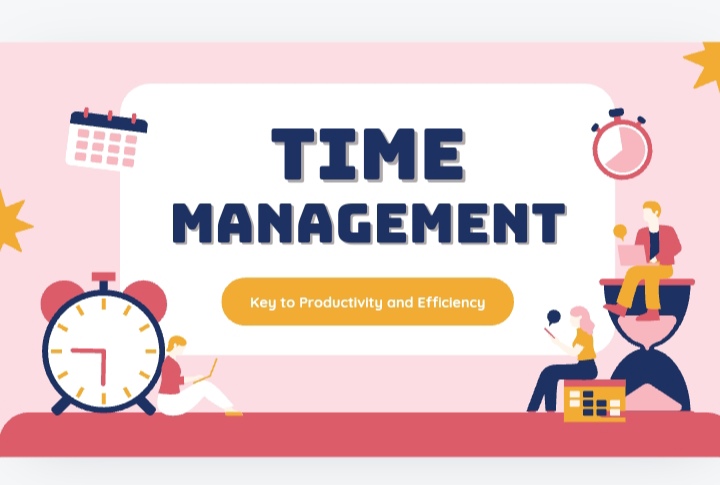Mastering Time Management: Strategies for Boosting Productivity and Achieving Your Goals
In a world that never seems to slow down, mastering time management is essential for both personal and professional success. Effective time management not only helps you stay organized and meet deadlines but also reduces stress and enhances your overall quality of life. This guide will explore practical strategies for managing your time more effectively, overcoming common pitfalls, and achieving your goals with greater ease.
What is Time Management?
Time management refers to the process of planning and controlling how much time to spend on specific activities. Good time management enables you to work smarter, not harder, allowing you to get more done in less time. It involves setting priorities, scheduling tasks, and avoiding procrastination to make the most of your available time.
The Benefits of Effective Time Management
- Increased Productivity: By organizing and prioritizing tasks, you can accomplish more in less time, leading to improved efficiency.
- Reduced Stress: Managing your time effectively helps you meet deadlines and reduces the anxiety associated with last-minute rushes.
- Better Work-Life Balance: Effective time management allows you to allocate time for both work and personal activities, contributing to a healthier work-life balance.
- Enhanced Focus: With a clear plan in place, you can concentrate on your tasks without getting distracted, leading to higher quality work.
- Achieving Goals: Proper time management helps you set and achieve personal and professional goals by ensuring that you stay on track.
Key Strategies for Effective Time Management
1. Set Clear Goals
Setting clear, achievable goals is the first step in effective time management. Define both short-term and long-term goals, and break them down into manageable tasks. Use the SMART criteria (Specific, Measurable, Achievable, Relevant, Time-bound) to ensure your goals are well-defined and actionable.
2. Prioritize Tasks
Not all tasks are created equal. Use techniques like the Eisenhower Matrix to prioritize tasks based on urgency and importance:
- Urgent and Important: Tasks that need immediate attention and are critical to your goals.
- Important but Not Urgent: Tasks that are crucial but can be scheduled for later.
- Urgent but Not Important: Tasks that require immediate attention but don’t significantly impact your goals.
- Not Urgent and Not Important: Tasks that are neither time-sensitive nor critical.
Focus on tasks that fall into the “Urgent and Important” and “Important but Not Urgent” categories to maximize productivity.
3. Create a Daily Schedule
Develop a daily schedule that outlines your tasks and time blocks for completing them. Use tools like calendars, planners, or digital apps to organize your day. Allocate specific time slots for work, breaks, and personal activities. Stick to your schedule as closely as possible to stay on track.
4. Use Time Management Techniques
Employ proven time management techniques to enhance your efficiency:
- Pomodoro Technique: Work in short, focused intervals (usually 25 minutes), followed by a 5-minute break. After four intervals, take a longer break (15-30 minutes).
- Time Blocking: Dedicate specific blocks of time to particular tasks or activities, and avoid multitasking during these periods.
- Two-Minute Rule: If a task takes less than two minutes to complete, do it immediately rather than postponing it.
5. Avoid Procrastination
Procrastination can derail your time management efforts. Combat procrastination by:
- Breaking Tasks into Smaller Steps: Large tasks can be overwhelming. Divide them into smaller, manageable steps to make them more approachable.
- Setting Deadlines: Create deadlines for yourself to maintain accountability and motivation.
- Eliminating Distractions: Identify and minimize distractions in your workspace. Turn off notifications and create a focused environment.
6. Delegate and Outsource
Recognize tasks that can be delegated or outsourced. Delegating tasks to team members or outsourcing certain responsibilities can free up your time to focus on higher-priority activities. Communicate clearly when delegating and ensure that you provide the necessary resources and support.
7. Review and Adjust
Regularly review your time management practices to assess what is working and what needs improvement. Adjust your strategies as needed based on your experiences and evolving goals. Conduct weekly or monthly reviews to reflect on your progress and make necessary adjustments.
Common Time Management Pitfalls to Avoid
1. Overcommitting
Avoid taking on more tasks than you can handle. Overcommitting can lead to burnout and decreased productivity. Be realistic about your capacity and learn to say no when necessary.
2. Neglecting Breaks
Skipping breaks can lead to fatigue and decreased focus. Incorporate regular breaks into your schedule to recharge and maintain productivity throughout the day.
3. Lack of Planning
Failing to plan can result in disorganization and missed deadlines. Make planning a priority, and ensure that you allocate time for both work and personal activities.
4. Ignoring Priorities
Neglecting to prioritize tasks can lead to wasted time on less important activities. Use prioritization techniques to focus on tasks that align with your goals.
5. Multitasking
Multitasking can reduce efficiency and increase the likelihood of errors. Focus on one task at a time to ensure better results and more effective use of your time.
Emerging Trends in Time Management
1. Digital Time Management Tools
The rise of digital tools and apps has revolutionized time management. Tools like Trello, Asana, and Todoist offer features for task management, scheduling, and collaboration, making it easier to stay organized and on track.
2. AI-Powered Productivity Assistants
Artificial Intelligence (AI) is enhancing time management with smart productivity assistants that can automate scheduling, provide reminders, and analyze work patterns to optimize efficiency.
3. Remote Work Flexibility
The shift to remote work has increased the importance of time management. Emphasize self-discipline and use digital tools to manage your time effectively in a remote work environment.
4. Mindfulness and Time Management
Integrating mindfulness practices into time management can improve focus and reduce stress. Techniques like meditation and mindful breaks can enhance your ability to manage time effectively.
Conclusion
Mastering time management is essential for achieving your goals, boosting productivity, and maintaining a healthy work-life balance. By setting clear goals, prioritizing tasks, using effective techniques, and avoiding common pitfalls, you can make the most of your time and reach new levels of success.
Embrace the principles of time management and integrate them into your daily routine. With practice and dedication, you’ll find yourself managing your time more effectively, reducing stress, and accomplishing your objectives with greater ease. Start today, and unlock the potential of your time to create a more productive and fulfilling life.



